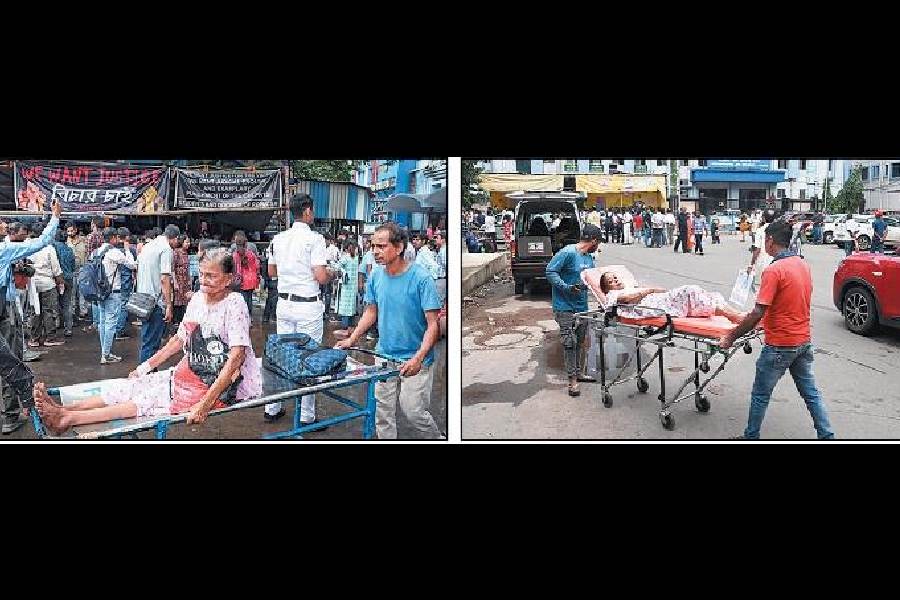State health secretary Narayan Swaroop Nigam on Tuesday appealed to the protesting doctors at government medical colleges to withdraw their cease-work for the sake of patients.
Families of patients spoke about the harassment of their near and dear ones as junior doctors have been staying off the emergency and ward duty over the rape and murder of a junior doctor at the RG Kar Medical College and Hospital.
“Patient services have been badly affected across hospitals in the state in the last few days owing to the absence of the resident doctors, in OPDs as well as emergency departments,” Nigam said at a news conference at Swasthya Bhavan on Tuesday afternoon.
“An extremely unfortunate incident happened on August 9. The state government condemns this incident in the strongest words. We are fully committed to its proper investigation. The commissioner of police is personally supervising the investigation.
The commitment from the state government is that we will ensure the highest possible punishment for the culprit,” the health secretary said.
“It is our appeal to the resident doctors that they must attend to their services considering the commitment shown by the state government towards proper investigation and ensuring safety and security of doctors. We request that the normalcy of patient services is restored immediately for the benefit of the public.”
The protesting doctors, however, have stuck to their stand that the cease-work would continue till all their demands are met.
A cancer patient had to go back without treatment from two medical colleges.
Biswajit Patra took her mother, a cancer patient, to the Calcutta National Medical College and Hospital on Tuesday. The patient was sent back from the emergency room because there were no doctors to treat her, said Biswajit.
Later, he took her mother to Medical College Kolkata, where they had a similar experience.
“I will take my mother back home. The entire day she did not receive any treatment,” he said.
Health secretary Nigam said senior doctors are providing emergency and OPD services. “Still we are receiving complaints from patients about unavailability of timely emergency care in some hospitals,” he said.
Over 2 lakh patients are treated in the OPDs of state government hospitals, about 1 lakh receive telemedicine services and between 12,000 and 15,000 are admitted daily. “We have to maintain normality there, too,” Nigam said.











